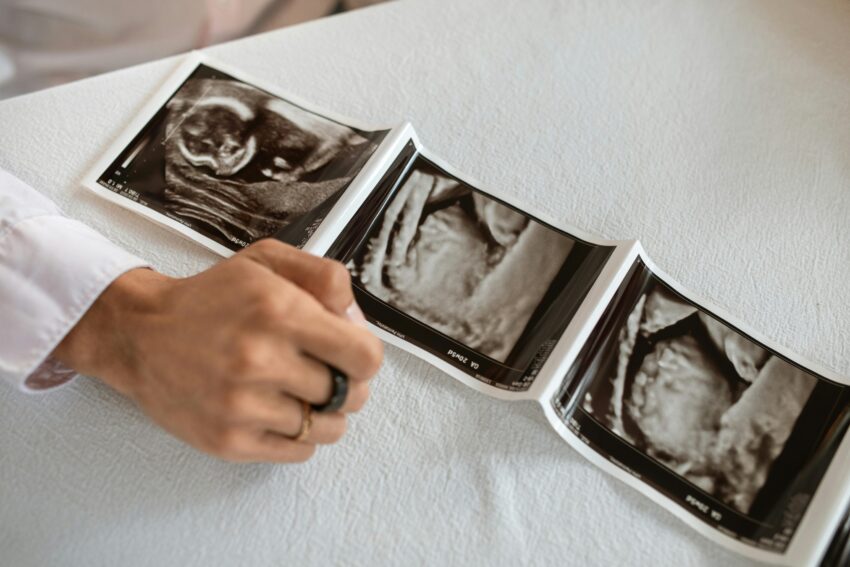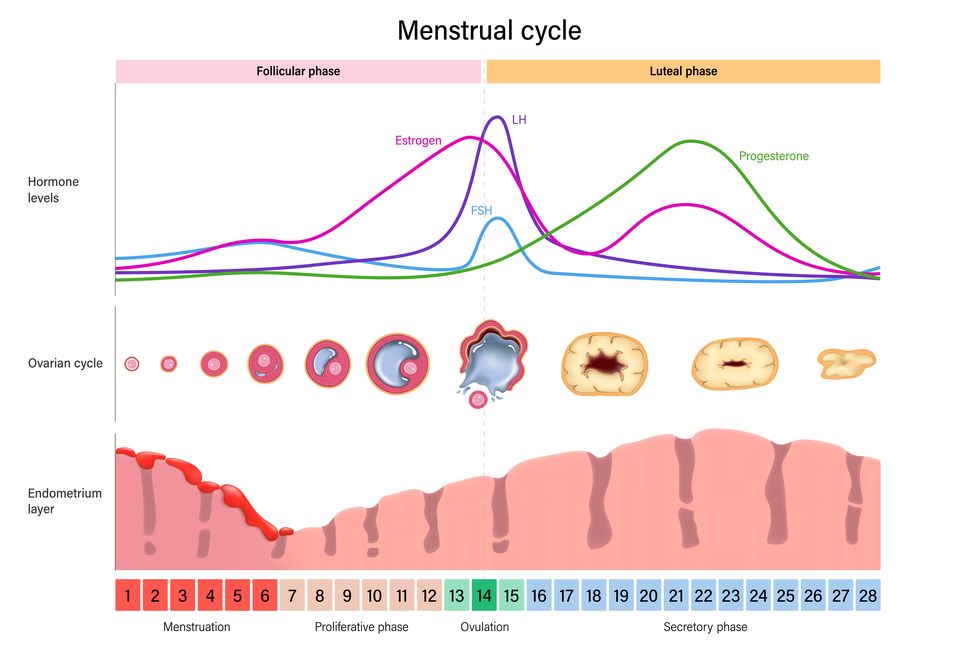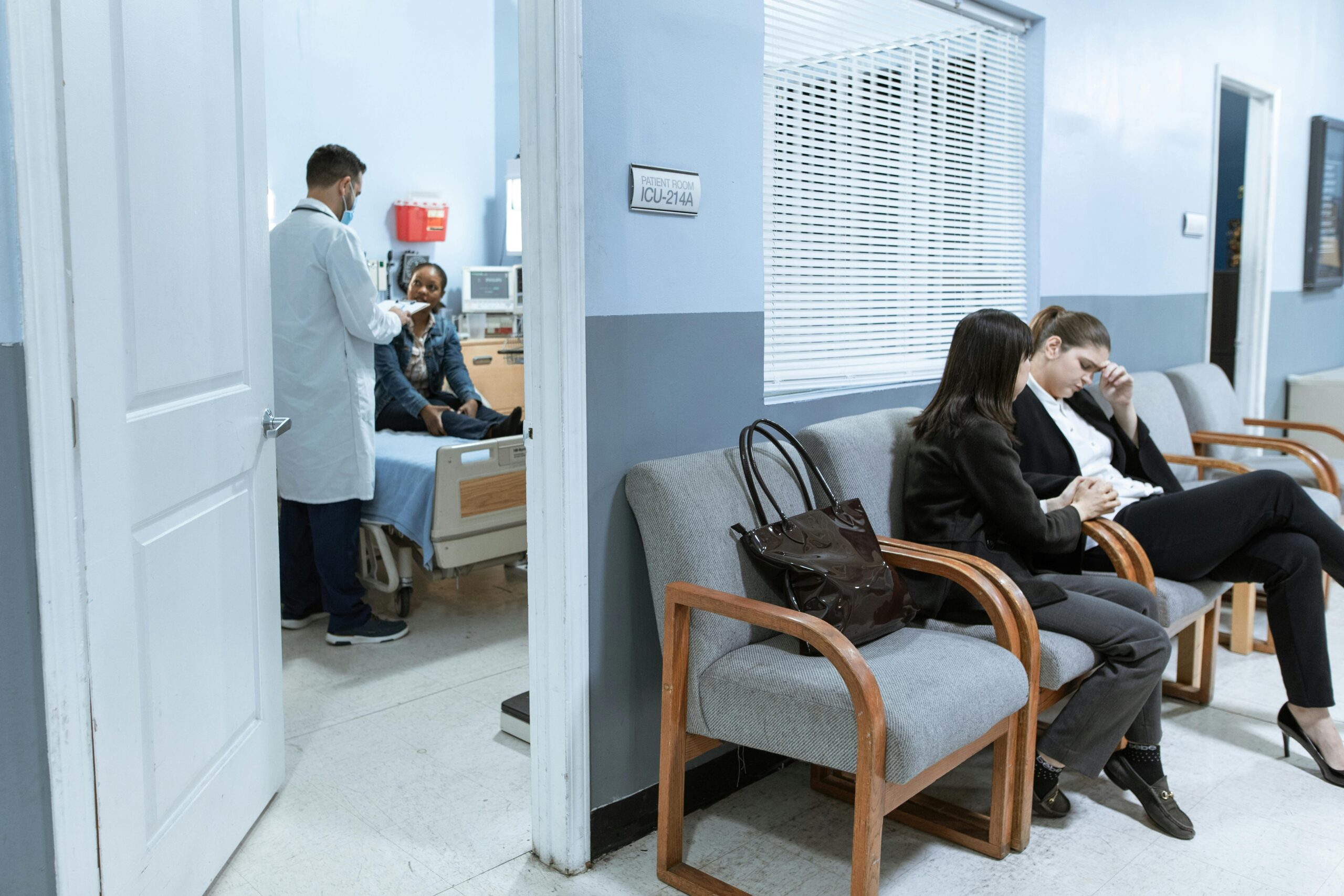#1 Tip to Get Pregnant: The Importance of Ovulation

This post may contain affiliate links which means I may receive a commission for purchases made through links. I will only recommend products that I have personally used! Learn more on my Private Policy page.
If you are trying to conceive, or perhaps may be struggling with infertility, you have likely been hearing loads about the importance of ovulation. Ovulation is one of the essential steps to get pregnant. If you are not ovulating, conceiving naturally will be nearly impossible. In this post, we will dive into understanding ovulation in an effort to understand our bodies’ natural processes and have better success achieving pregnancy.
To better understand ovulation, we need to start by talking about the menstrual cycle.
The Menstrual Cycle:
Menstruation also known as menses, or a period, occurs from puberty to menopause and consists of the shedding of the uterine lining once a month during a typical lunar cycle. Or to put it more plainly, once a month you have vaginal bleeding for roughly a week, mixed with some cramping, pain, moodiness, likely some chocolate eating, and possibly some crying. If you are a female of any age I’m sure you know the drill.
On a more scientific level, the first part of the menstrual cycle is called the follicular phase. This is where a follicle is stimulated to mature in the ovary. About halfway through the menstrual cycle, that follicle ovulates, or releases the mature egg that is ready to meet its other half- the sperm- and become a little embryo! The second half of the menstrual cycle is called the luteal phase, and this is where the uterine lining becomes thick and more hospitable for that little embryo. If you don’t get pregnant (or create your little embryo) the uterus has no need to be thick and ready for pregnancy, and the lining is shed (menstruation) starting the cycle all over again.
The menstrual cycle is truly a miracle! Many hormones play a role in the whole process. For those who wish to become pregnant, the most important part of this whole cycle is the ovulation phase.

Ovulation:
Again, ovulation is the process in a woman’s menstrual cycle when a mature egg is released from the ovary, making its way down the fallopian tube in anticipation of fertilization by sperm. This event typically occurs around the midpoint of the menstrual cycle, usually around day 14 in a 28-day cycle. If you have a regular period, roughly 28 days, you can anticipate that ovulation may be anywhere between days 12-16. This is your most fertile time, the time when conception is most likely to occur.
There are many methods to track ovulation, here are just a few inexpensive ovulation test kits:
- Clear Blue Digital Ovulation test kit
- Frida Fertility Ovulation Prediction test
- Easy@Home Ovulation test strips
There are also other natural ways to monitor ovulation without purchasing a testing kit.
Signs of Ovulation:
- Changes in Cervical Mucus:
- Before ovulation, cervical mucus often becomes clearer, more slippery, and has a consistency similar to egg whites. This change in cervical mucus is associated with increased fertility as it facilitates the movement of sperm.
- Basal Body Temperature (BBT) Rise:
- Tracking your basal body temperature with a basal thermometer can help detect ovulation. After ovulation, there is a slight increase in basal body temperature, typically about 0.5 to 1 degree Fahrenheit. This temperature shift remains elevated until the start of the next menstrual cycle.
- Ovulation Pain (Mittelschmerz):
- Some women experience mild pelvic pain or twinges on one side of the abdomen during ovulation. This discomfort, known as Mittelschmerz, is thought to be caused by the release of the egg from the ovary.
- Increased Libido:
- Hormonal changes during ovulation can lead to an increase in libido or sexual desire. This heightened interest in sex is believed to be nature’s way of promoting procreation during the most fertile period of the menstrual cycle.
- Breast Tenderness:
- Hormonal fluctuations, including an increase in estrogen, can cause breast tenderness or sensitivity in some women during ovulation.
- Luteinizing Hormone (LH) Surge:
- The LH surge is what is being detected in the ovulation predictor kits. This surge occurs about 24 to 36 hours before ovulation. This surge triggers the release of the mature egg from the ovary.
- Changes in the Cervix:
- The cervix undergoes changes during the menstrual cycle, becoming softer, higher, and more open around the time of ovulation. Monitoring these cervical changes can provide additional clues about the fertile window.
Factors Influencing Ovulation
- Stress:
- High levels of stress can disrupt the hormonal balance, affecting the regularity of ovulation. Chronic stress may lead to irregular menstrual cycles, making it difficult to track ovulation, or sometimes causing an anovulatory state.
- Weight Changes:
- Significant changes in body weight, whether weight loss or gain, can impact hormonal levels, potentially causing irregular ovulation or even anovulation (lack of ovulation).
- Excessive Exercise:
- Intense and prolonged physical activity, especially in combination with low body fat, may disrupt the hormonal signals necessary for regular ovulation.
- Polycystic Ovary Syndrome (PCOS):
- PCOS is a common condition characterized by hormonal imbalances that can lead to irregular ovulation or anovulation. Women with PCOS may have cysts on their ovaries and may experience fertility challenges.
- Age:
- As women age, the likelihood of irregular ovulation increases. Ovulatory function tends to become less predictable, and fertility declines, especially as women approach their late 30s and 40s.
- Hormonal Imbalances:
- Conditions such as thyroid disorders or disruptions in the production of reproductive hormones (estrogen and progesterone) can affect ovulation.
- Medications:
- Certain medications, such as those used for chemotherapy, may impact ovarian function and disrupt the regularity of ovulation.
- Breastfeeding:
- Exclusive breastfeeding can suppress ovulation, leading to a delay in the return of regular menstrual cycles. This is known as lactational amenorrhea.
- Medical Conditions:
- Certain medical conditions, such as diabetes or autoimmune disorders, can influence hormonal balance and affect ovulation.
- Environmental Factors:
- Exposure to environmental toxins, pollutants, or endocrine-disrupting chemicals may interfere with the hormonal signals involved in the ovulatory process.
- Irregular Menstrual Cycles:
- Irregular menstrual cycles themselves can be a factor influencing ovulation. Inconsistent cycles make it challenging to predict the timing of ovulation.
- Genetic Factors:
- Some women may have a genetic predisposition to irregular ovulation, and family history can play a role in reproductive health.
If you have concerns you may not be ovulating regularly, seek help from your medical provider or fertility specialist.
After Ovulation:
Although understanding ovulation is the key to success with pregnancy, there are often other factors that affect fertility outside of ovulation. In my case, I had regular periods and ovulation. My husband was tested and had no abnormalities with sperm. I have a condition called endometriosis, which can cause poor egg quality, and occasionally scarring of the fallopian tube. So although I was creating a mature egg each month, it is likely that egg never met the sperm- thus, no embryo and no pregnancy. For more information on other causes of infertility, check out this post.
Conclusion:
Whether you’re on a fertility journey or simply want to be more in tune with your body, knowledge about ovulation is a valuable tool. By navigating the complexities of your menstrual cycle, you gain insights that contribute to overall reproductive well-being, especially during the critical time frame of ovulation. Wherever you are on your journey, good luck!



